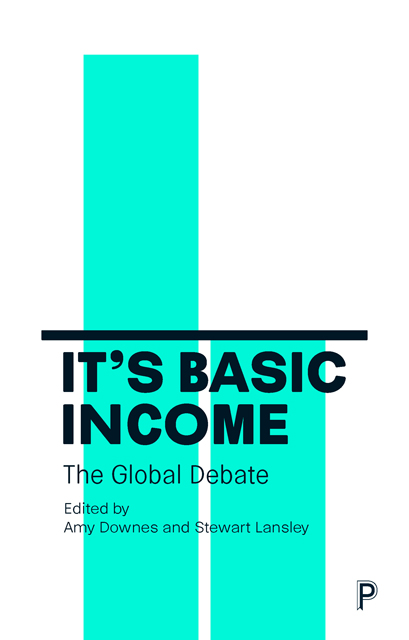23 - Basic income and social democracy
Published online by Cambridge University Press: 11 April 2023
Summary
‘As regards social protection, [we must make] room for a third model fundamentally different both from the old social assistance model – public charity – and from the social insurance model – worker solidarity – with which social democracy has been closely associated and which it feels it is its duty to defend.’
The idea of an unconditional basic income is in fashion. From Finland to Switzerland, from San Francisco to Seoul, people talk about it as they have never done. Twice before, basic income was the object of a real public debate, albeit briefly and limited to one country at a time. In both episodes, the centre left played a central role.
The first debate took place in England in the aftermath of World War I. The Quaker and engineer Dennis Milner managed to get his ‘state bonus’ proposal discussed at the 1920 Labour Party conference. It was rejected, but prominent members of the party kept defending it in the following years under the label ‘social dividend’. Among them were the Oxford economist and political theorist George Cole and the future Nobel laureate James Meade.
The second debate took place in the United States in the late 1960s and early 1970s. Another future Nobel laureate, James Tobin, advocated the introduction of a ‘demogrant’, along with Harvard economist and best-selling author John Kenneth Galbraith, also on the left of the Democratic Party. Persuaded by them, Senator George McGovern included the proposal in his programme during his campaign for the nomination as democratic presidential candidate, but dropped it in the last months before the 1972 presidential election, which he lost to Richard Nixon.
The current, far longer and increasingly global debate originates in Europe in the 1980s. Interest for basic income arose more or less simultaneously in several countries and prompted the creation of a network (BIEN) that now has national branches in all continents. This time, however, the social democratic left is not exactly at the forefront, far less than the greens, for example, or than some components of the liberal right and the far left.
- Type
- Chapter
- Information
- It's Basic IncomeThe Global Debate, pp. 118 - 122Publisher: Bristol University PressPrint publication year: 2018
- 1
- Cited by



